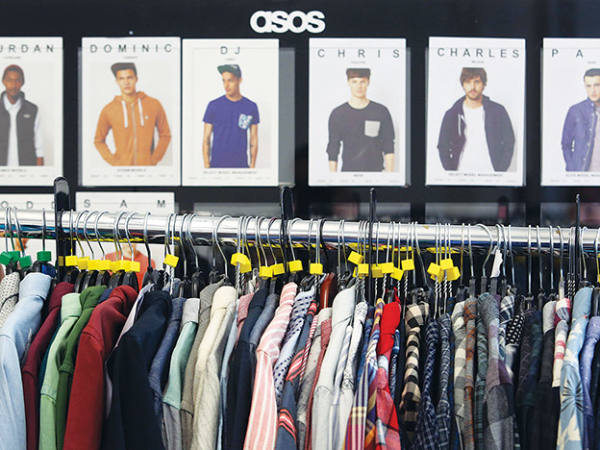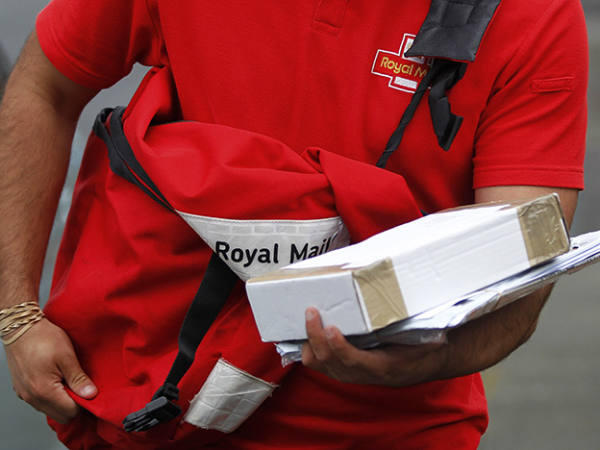While households up and down the country are recovering from the excesses of the Christmas break, retailers will be poring over their sales figures in the hope that the festive season has brought with it some glimmer of good news. Any contrarians betting on bumper trading from the UK's high street are likely to be disappointed, but the news won't all be bad and good stockpicking should continue to reward investors.
Following a phenomenal run in 2012 that saw the FTSE All-Share general retail sector deliver a total return of 39.2 per cent - a performance that was only bettered by the single-stock forestry and paper sector and on a par with the life insurers - the big question is whether the momentum can continue.
Broker Peel Hunt points out that the average share price in the retail sector was up by more than 50 per cent last year. While the economy remains fragile, the broker believes profit conditions are the best they’ve been for several years, with a likelihood of more upgrades than downgrades.
Retail therapy
However, dig a little deeper and the picture is not so rosy. That's because the sector's apparent outperformance last year was fuelled by weak trading in previous years and consequently low ratings. Like-for-like sales were mostly in negative territory throughout 2011, according to figures from the British Retail Consortium. What's more, the pick-up in trading last year was not that strong.
In November this year, the BRC/KPMG sales monitor reported like-for-like sales growth of 0.7 per cent. David McCorquodale, head of retail for KPMG, urged caution, saying the figures were "only just" positive against a weak comparative period. Retailers, he warned, entered December "in a state of nervousness due to weak top-line growth and pressure on margins".
Sanjay Vidyarthi, an analyst for Espirito Santo, warns that if earnings upgrades don't come through at some point this year, it will be hard to justify further upside and even the current level of some valuations. "Unless we see a catalyst, it will be another tough year and you may see retrenchment in share prices," he says.
Verdict's forecasts reinforce some of these concerns. It expects retail spending volumes over Christmas (excluding food) to have contracted 0.2 per cent. Growth forecasts this year are under the 2 per cent mark, meaning 2013, like 2012, will be all about how companies cope with the tough conditions.
"The UK general retail sector outperformed [in 2012] because earnings forecasts were broadly stable and there was consequently a dramatic re-rating of the sector," says Matthew Taylor, an analyst for Numis Securities. "Following the re-rating of discretionary stocks, the premium being asked for the quality and safe end of the sector is now more modest. We would tilt weightings towards this segment as opportunities arise."
Back the winners
For the best retailers the weakened economy has brought with it the advantage of market consolidation as high-profile rivals have gone bust. For the strongest in the sector, this means they can, and are, picking up business from the casualties while improving what they offer shoppers, and that's good news for their shareholders.
Maureen Hinton, director of research for Verdict, expects another year of weakened earnings, revenue and margins for the industry as a whole. But she believes companies such as Next (NXT), which has built up its international arm and runs a successful online business, will prosper and take market share while others fall by the wayside. Particularly vulnerable areas are home, furniture and electrical retailers and anything facing high levels of online competition. "At the end of the first quarter we might see a few more retailers go, even perhaps in January," says Ms Hinton.
Aviva Investors' director and head of UK institutional equities, Trevor Green, believes the economics of supply and demand also suggest high-street survivors should have an easier time ahead. He points out that while queues were forming at Comet when the retailer went into administration, shares in Dixons shot up by 25 per cent in anticipation of a key competitor exiting the market.
However, Mr Green also warns that the environment is very competitive and that the online threat is intensifying. "Shares in HMV rallied in February 2009, as it was perceived to be a beneficiary of the demise of Zavvi and Woolworths," he says. "However, online retailers proved the real winners. The lesson is that supply coming out of the marketplace can be good news provided you have backed the beneficiary."
Sports Direct (SPD) is one such player (see Favourites). The company benefited after rival JJB Sports went into administration in September, snapping up 20 stores, along with all of its stock, the Slazenger Golf brand licences and JJB's freehold property in Wigan. Its share price has soared nearly 80 per cent over the past year and with a market cap of £2.2bn, it’s significantly larger than the only other real rival in its sector, JD Sports (JD).
Meanwhile, Dixons' (DXNS) share price and valuation was helped by the demise of Comet, despite it posting a small underlying loss in its first half. The electronics retailer could take a sizeable chunk out of Comet's 5 per cent market share, worth £1.2bn of UK sales, securing its place as one of the last remaining major specialists on the country's high streets. However, the online threat is a major issue (see Outsiders).
| Favourites |
|---|
While group like-for-like sales were down 0.1 per cent in the first half of its financial year, Halfords' auto centres produced double-digit increases in operating profit, revenue and sales. The company's investment in a 24-hour online reserve and collect service is paying off and it is extending and redesigning services and products in it cycle range. A focus on debt reduction hasn't stopped the company from paying out good dividends, either. In the last financial year it rewarded shareholders with a final dividend of 14p a share and the board has approved an interim dividend of 8p to be paid on 25 January. Sports Direct reported bumper interim results, helped by a 54 per cent increase in online revenues, which now represent 12.5 per cent of total sports retail sales. Chief executive Dave Forsey has big expansion plans and while the share price at 383p is not far off a 10-year high, it’s worth bearing in mind that the company has swallowed up its main competitor. Laura Ashley's (ALY) interim results came in ahead of market expectations, and the stock is lowly valued at 28p, with a good dividend yield of roughly 7 per cent. The company also has scope to expand internet operations and develop overseas, namely in China and Russia. |
| Outsiders |
|---|
Carpetright (CPR) is suffering from deteriorating conditions in its European business while the UK economy is fragile and there are few signs that the subdued mortgage market will pick up. A number of self-help initiatives might improve the business, but the stock is trading on an eye-watering earnings multiple of 88. At a share price of 682p, it’s looking expensive for what it is. Dixons chief executive Sebastian James said he would be disappointed if the company didn’t get half of Comet's market share. However, the retailer still faces big problems. Its southern European business is lossmaking and it's still questionable whether the electronics chain can compete effectively against online rivals. |
| Company | Market Cap (£m) | PE ratio | PBT (£m) FY2013E* | EPS FY2013E* | PE FY2013E* | Div yield FY2013E* (%) |
|---|---|---|---|---|---|---|
| Sports Direct | 2,281.3 | 18.8 | 195 | 24.3p | 15.7x | 1.3 |
| Halfords | 679 | 11.4 | 70 | 26.4p | 12.9x | 6.4 |
| Dixons | 1,011 | na | 89.5 | 1.8p | 14.9x | 0 |
| Carpetright | 455 | 88.36 | 10 | 10.9p | 64.2x | 0.7 |
| Laura Ashley | 201 | 14.5 | 20 | 2p | 13.8x | 7.3 |
| Moss Bros | 59.1 | 69.87 | 1.50 | 1.6p | 36.7x | 0.9 |
*Based on Seymour Pierce estimates
IC VIEW
It may feel as though there is not a lot to be bullish about for general retailers. Indeed, it has been widely accepted that disposable incomes will remain flat or negative in 2013, keeping a tight lid on sales growth. However, companies with distinctive offerings who keep their websites up to scratch will ride out this storm. Online is becoming an increasingly popular way of shopping, with consumers demanding more choice, such as click and collect, rather than home delivery. Retailers who cater to this will do well. And those that capture global market share, particularly in the Far East, will be able to offset losses in a recession-weary West. This year will be tough for the high street, but for those left standing at the end, there is a lot of potential.








